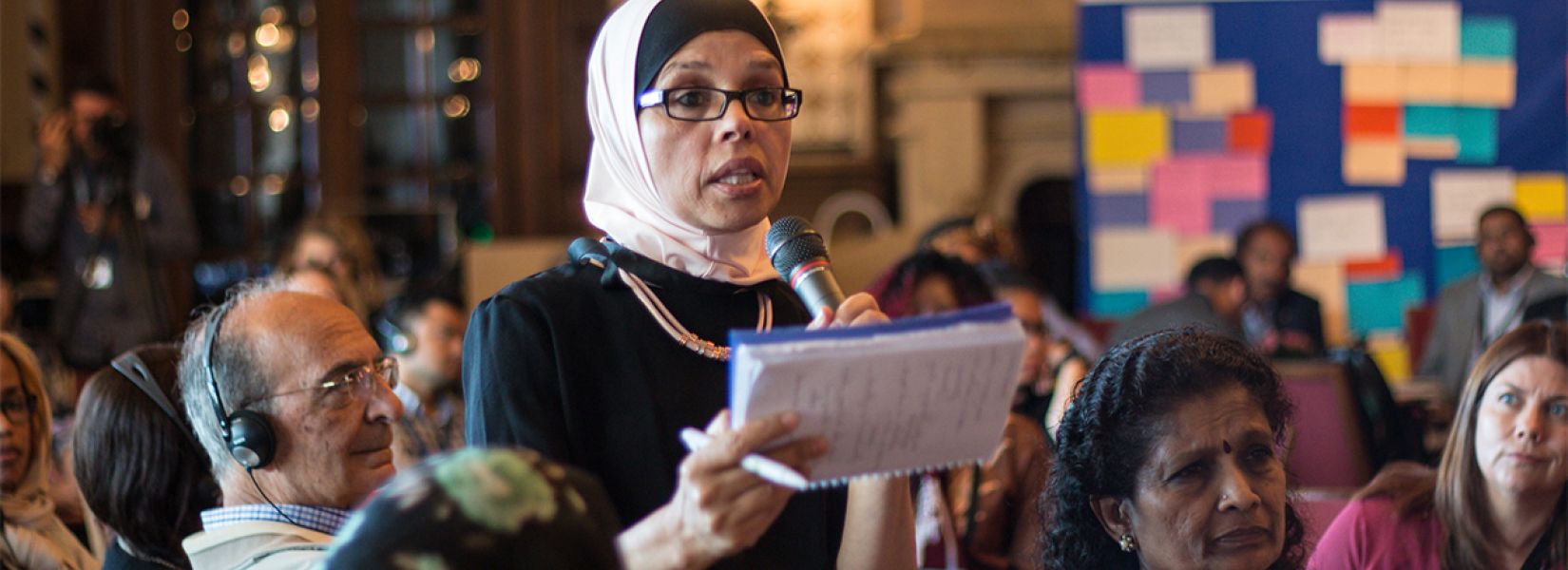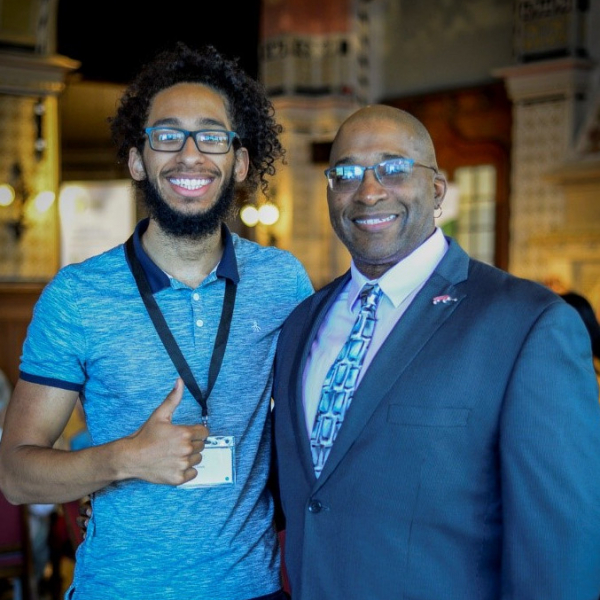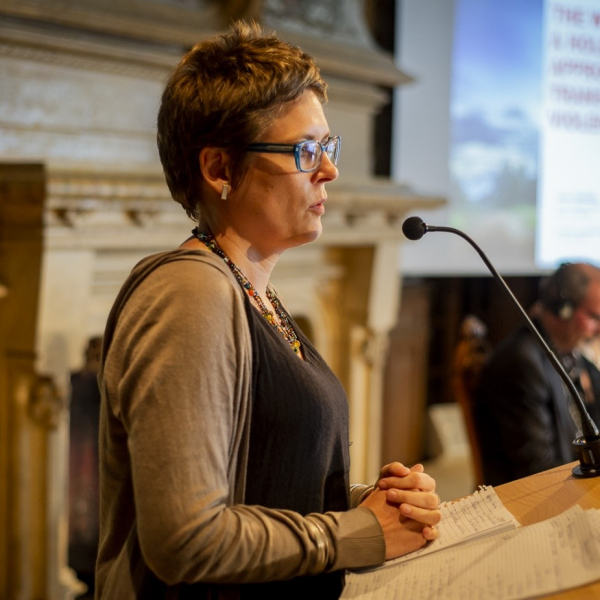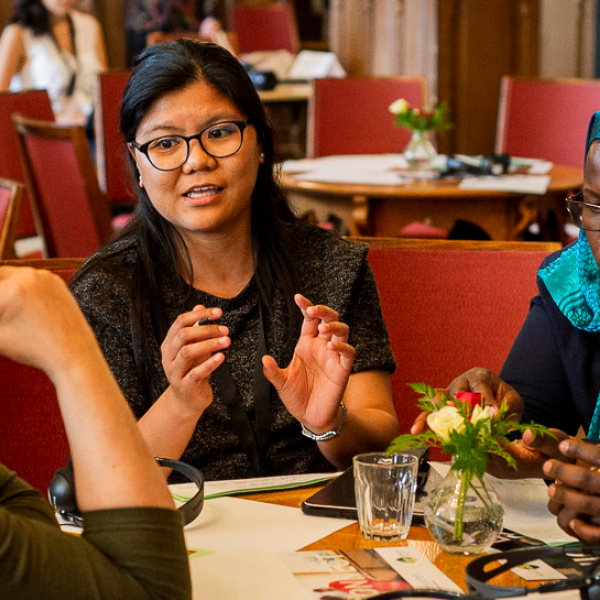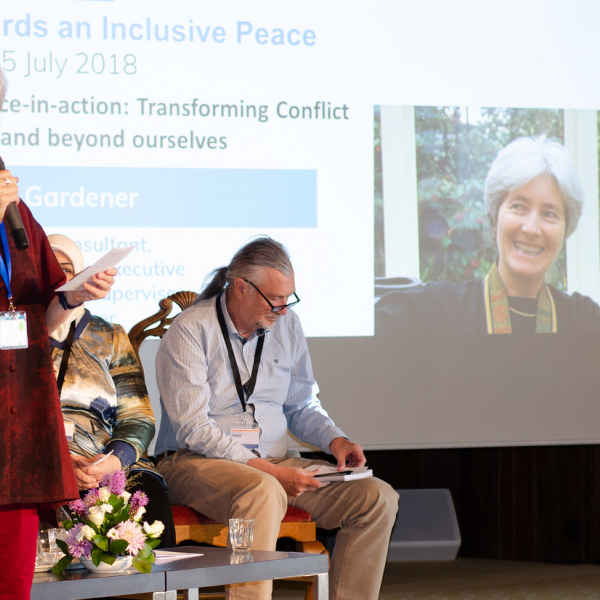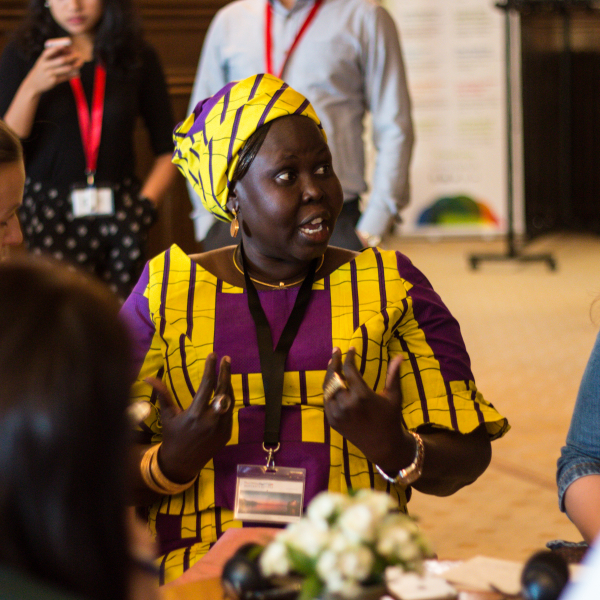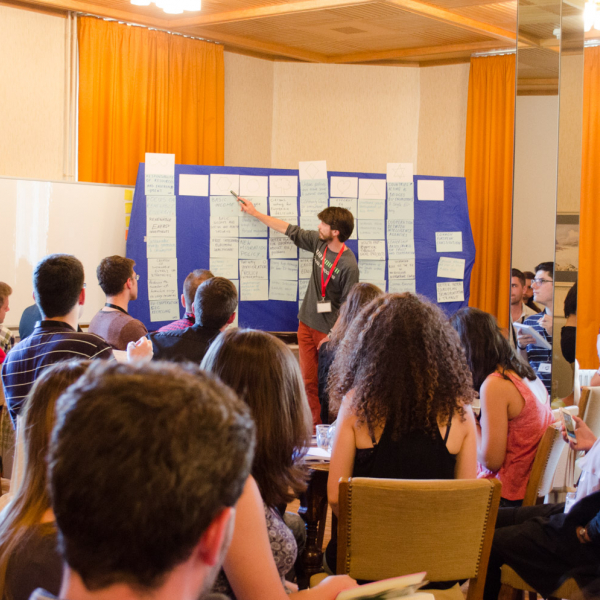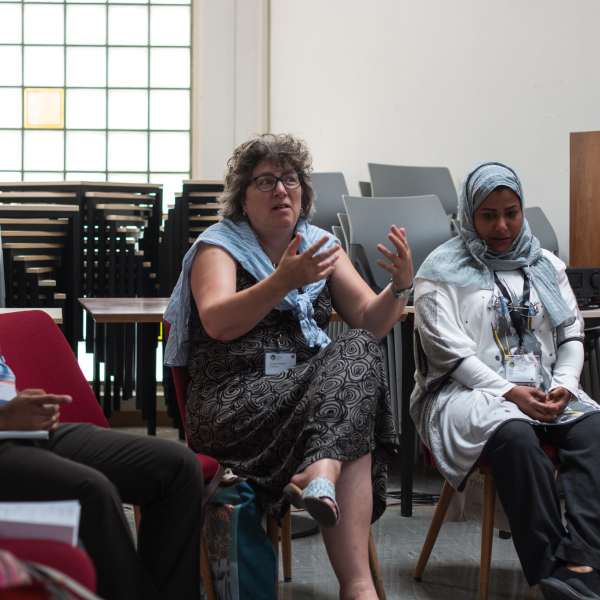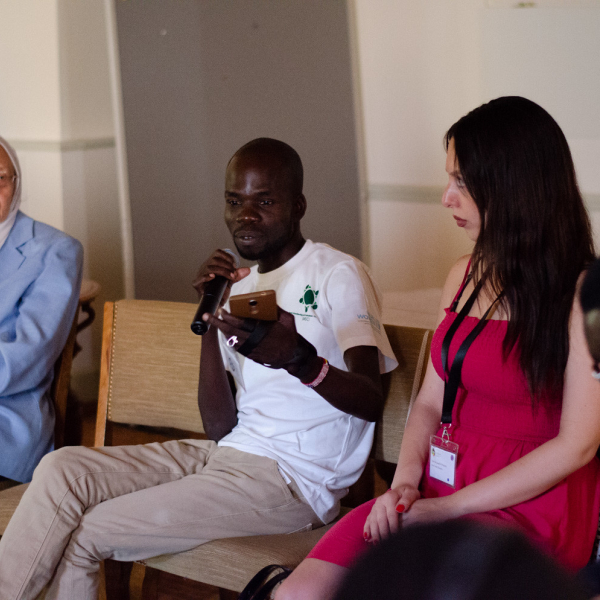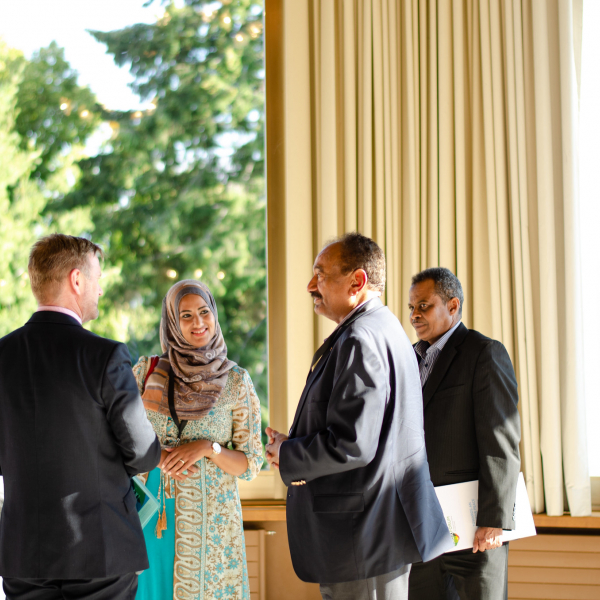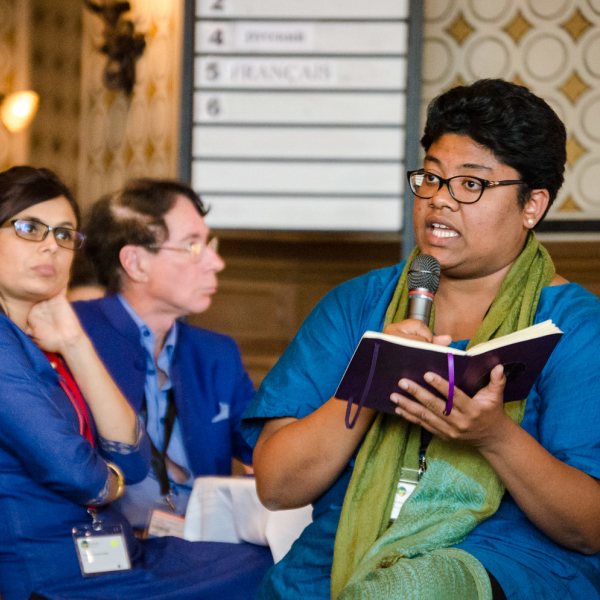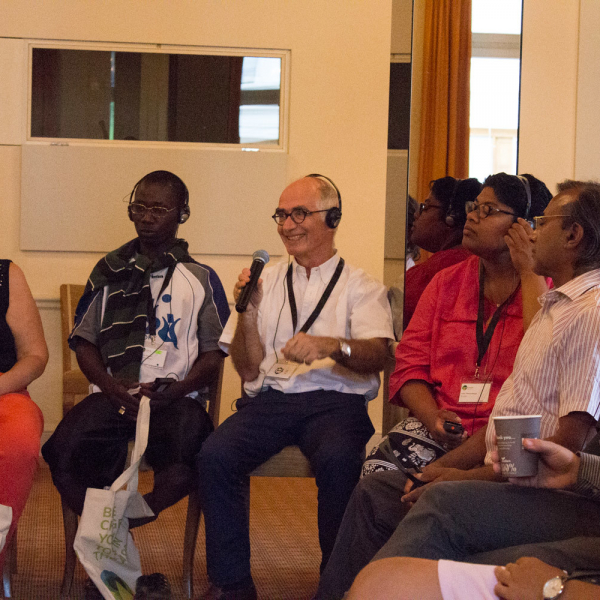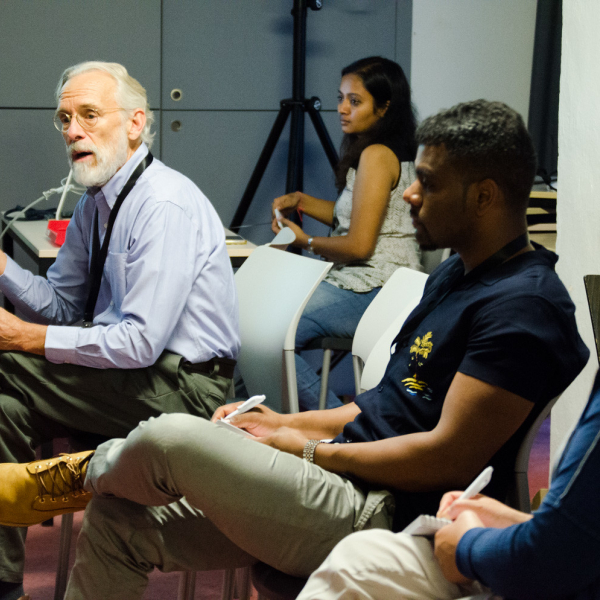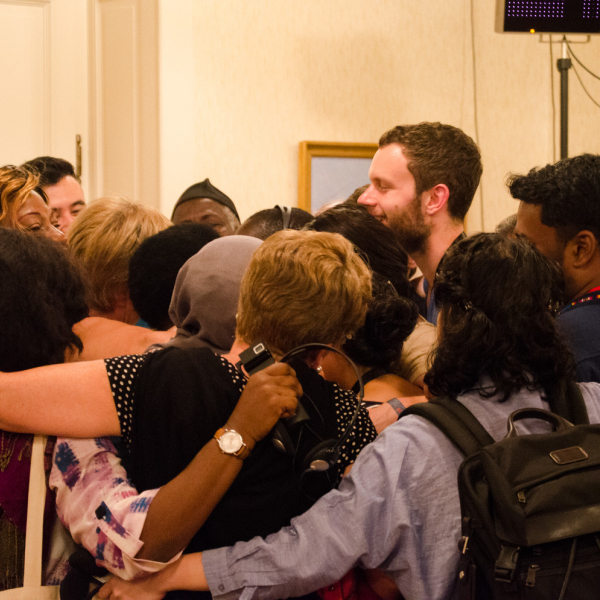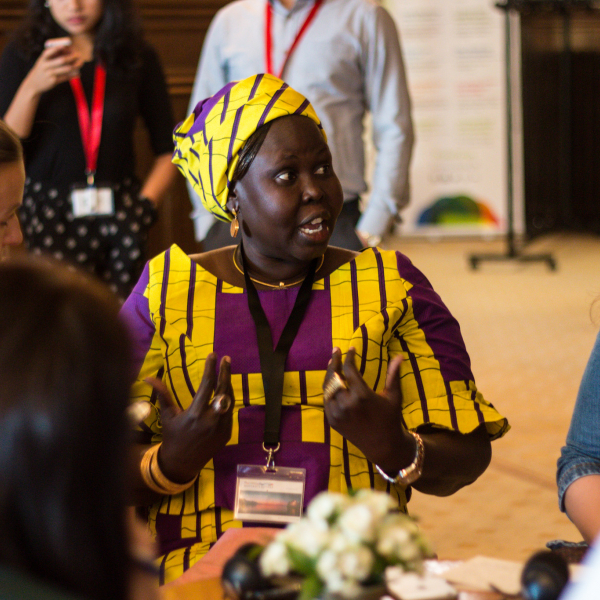Inter-religious dialogue as a tool for peace
Towards an Inclusive Peace 2018
15/07/2018During a workshop over two days’ time at Towards an Inclusive Peace, Moise “Mike” Waltner, Programme Manager of the International Fellows Programme at the International Dialogue Centre in Vienna (KAICIID), taught participants about inter-religious dialogue as a tool for peacebuilding.
The session opened with a discussion about what dialogue is and what it is not. Dialogue, Moise “Mike” Waltner explained, is not negotiation, debate, or discussion - it is instead a social contract, sharing, and surfacing that which is hidden. The purpose of interactive dialogue is not just to raise awareness but also to improve social cohesion. Interactive dialogue can build bridges between different religious groups.
By using tools such as appropriate communication skills, interactive activities, and creating safe spaces, we can also create effective dialogue. It’s important to note that the multiple religious, ethnic, and social identities people bring to the table can play a significant role in the way we interact with others. The role of inter-religious dialogue is to achieve an environment of trust and peace. Inter-religious dialogue can also help prevent violent extremism through restorative justice processes. “This training is really related to the restorative justice concept,” one participant said. “It represents a good starting point for those who are interested and reveals the most important factors that lead to violent extremism.” The training also shared factors that could prevent or transform violent extremism in communities by engaging in inter-religious dialogue.
Inter-religious dialogue could be led by faith leaders, community participants, or individuals in the religious group. In any case, facilitating inter-religious dialogue requires building collective understanding and shared trust between participants in order to create a safe space for dialogue to take place. With these factors in place, dialogue is more likely to be successful and to create the opportunity for personal growth and community-level action. It’s also possible to build stronger ties between different faith groups using inter-religious dialogue as a tool for local community building.
By Shannon McClain, with assistance from Caux Scholars Program
